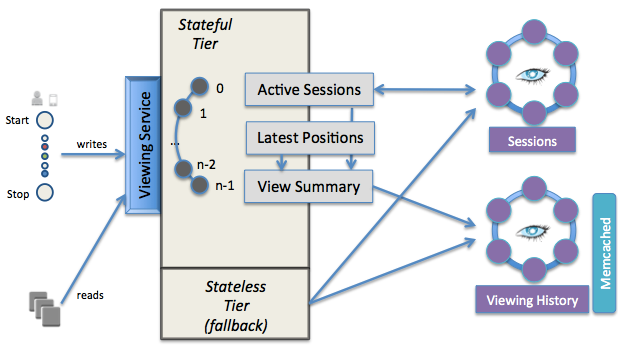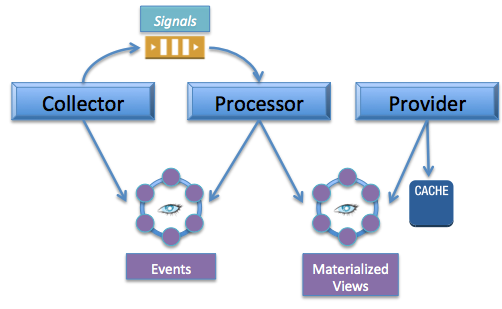Over the past 7 years or so, Netflix has expanded from a few thousand occasional users, to a massive video-streaming giant serving up billions of hours of content a month. Now the company is taking a long look at its current streaming infrastructure and plans to make a fairly major overhaul.
Based on data from a recent Netflix blog post, the company is set to revamp is computing technologies to offer much more efficient content streaming. Previously (and currently) focused on knowing what a person is watching, how far into a certain piece of content they got and what other users on the same Netflix account are watching (family members, etc.), the existing system is largely based on stateless and stateful tiers in order to provide a smart service for users. It also relies heavily on a Memcached system similar to what Facebook switched over to some years ago.

For the time being, Memcached has worked well for the streaming giant, but it is looking to the future for something that can much more efficiently support premium data types:
Memcached offers superb throughput and latency characteristics, but isn't well suited for our use case. To update the data in memcached, we read the latest data, append a new view entry (if none exists for that movie) or modify an existing entry (moving it to the front of the time-ordered list), and then write the updated data back to memcached. We use an eventually consistent approach to handling multiple writers, accepting that an inconsistent write may happen but will get corrected soon after due to a short cache entry TTL and a periodic cache refresh.
After a number of overhauls to the current system, Netflix is looking to slim down the new architecture with a main focus on availability over consistency, microservices, and a certain type of persistence, which allows for multiple storage technologies to be used in specialized circumstances.
While there aren't many details as to what this new system is made up of, you can can take a quick glance of the architecture below. What all this means for Netflix users isn't entirely clear either, but it sounds like a much more accommodating and intelligent system overall, something that is, generally speaking, a welcomed addition to any popular service.
